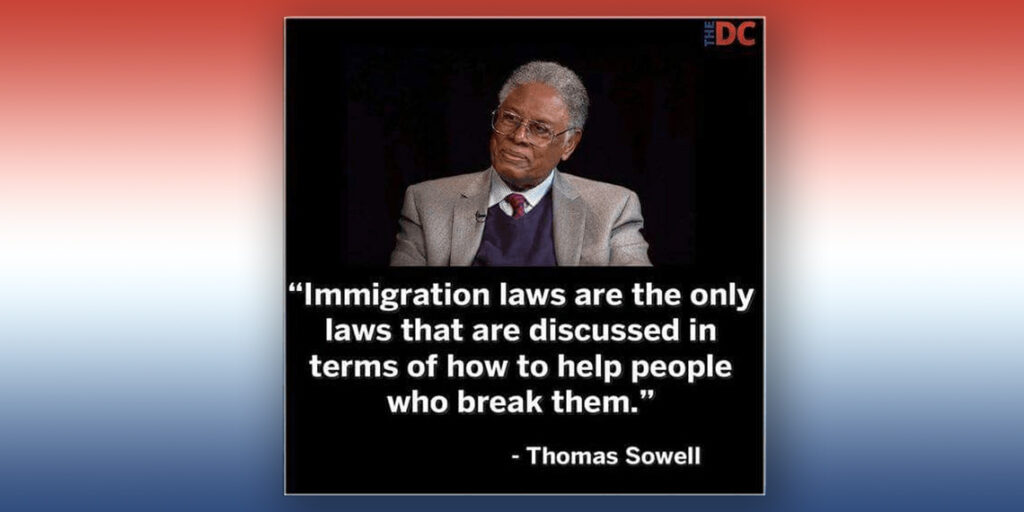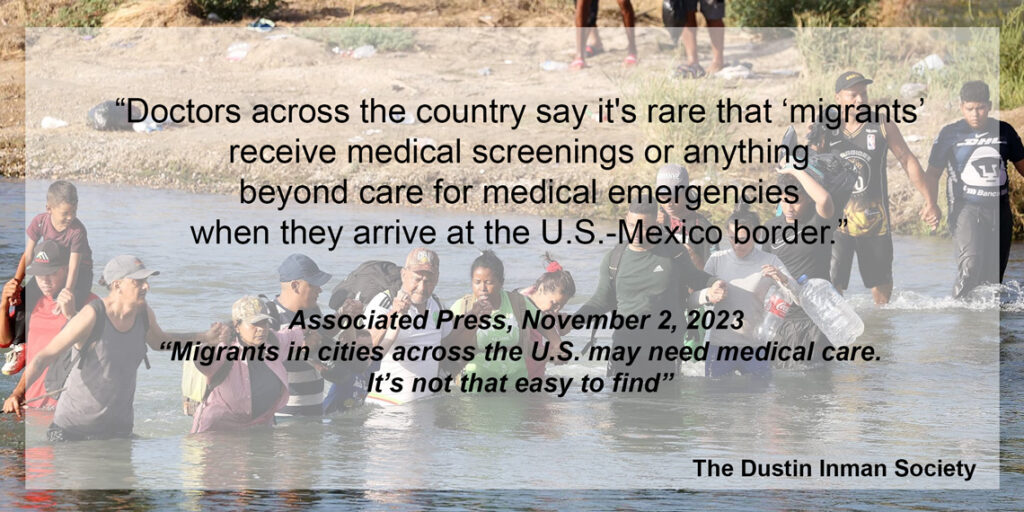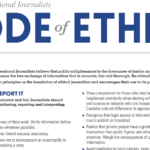
Relevant information that did not come up in below discussion:
New Numbers Show Effectiveness of Cancelled 287(g) Program in Two Georgia Counties.
Georgia law requires jailers to report illegal immigration status of prisoners to DHS (ICE).
____________________________________________________________________________________________

WABE (NPR)
‘New Gwinnet County Sheriff Ends Controversial 287g Program’
January 12, 2021
Host Lisa Rayam with newly elected Cobb County Sheriff Craig Owens Jr.
Original audio here.
Transcription from Rev.com
Rayam:
Good morning, the time is 7:34. Just as soon as he took office, Gwinnett County’s new sheriff delivered on a promise to get rid of the controversial 287(g) program. That’s the initiative that allows entities like the Sheriff’s Office to enforce federal immigration laws.
Rayam:
Good morning, Sheriff Taylor. How are you?
Sheriff Taylor:
Good morning, Lisa. How are you doing?
Rayam:
Wonderful. Thank you so much for joining us today. Uh-
Sheriff Taylor:
[crosstalk 00:00:34]-
Lisa:
You said getting rid of the 287(g) program was necessary. Why is that?
Sheriff Taylor:
Well, when you look at, you know, the program, um, like I’ve said before, that program, the intentions when they first put it in place, it had good intentions, but like any tools, a lot of tools that are used in law enforcement, people start to take advantage of it, and, uh, that’s what you have with this. So basically, what that program started to do was target, uh, you know, people of color that were in this country that’s undocumented, so, you know, it became, you know, a racist issue for me, it became a prejudice issue for me, and it reminded me of how, um, you know, Black America was back in the 90s and the 80s when we were profiled just based upon our race, so I felt it was necessary from day one to go ahead and end that program. So-:
Rayam:
Yeah. You mentioned, uh, profiling, and the term racial profiling is often used and, and equated with 287(g), so you clearly agree with that sentiment then?
Sheriff Taylor:
Yes, I do. Um, it’s obvious when you go back in and you look at the numbers, the numbers are so off balance, you know, of the people that are coming in, especially, uh, jaded towards Hispanics. So, you know, the numbers are undeniable, um, and the increase in the numbers under the Trump administration versus the Obama administration, I mean, it’s just unin- undeniable and unexplainable.
Rayam:
There was the myth that immigrants, illegal or not, fostered more crime in the country, and you didn’t quite buy that. Why?
Sheriff Taylor:
Because there is no statistical data that, that proves that, okay? Um, when you look at crime trends, you know, especially here in Gwinnett County, um, there’s been a downward crime trend here with exception of, uh, there’s been a little bit of an uptick in violent crimes, so when you go back in, an- and especially in the area of gang violence. So, you know, we had at one point 55 homicides here in Gwinnett County. Out of those 55, excuse me, over half of them was attributed to gangs or gang type violence. So again, you know, when we’re looking at what is the number one, you know, major issue here, you know, and those are homicide type cases, you’re not seeing where they’re, these people are here in this country that’s undocumented, so the, the thought process that 287(g) keeps us safer, uh, is, is just, it’s not clear.
Rayam:
So instead, you want to support programs aimed at tackling gang violence and human trafficking issues. Is, is that, uh, the major concern of Gwinnett County in 2021?
Sheriff Taylor:
Well, going back, looking at, you know, the fact that over half of the homicides that we had here in Gwinnett County, uh, was attributed to either gangs or gang violence, you know, I think that that was a necessary first step for me, is to come in and address that issue. Um, you know, if we’re talking about, you know, what, what are we going to do to keep the citizens of Gwinnett County safe, to me that’s a logical first step right there. 287(g) doesn’t show me, it doesn’t prove to me that it’s working to keep the citizens of Gwinnett County safe. It’s just, you know, a thought process of people who do not want people in this country, and especially people in this country that’s undocumented, so I felt like that was a better step.
Sheriff Taylor:
Um, we’re not putting, you know, enough emphasis in the law enforcement community on human trafficking, so that is another issue that I want to make sure that we, you know, put more focus toward and put more resources toward, so those were, uh, two of my first initiatives, uh, after I took office here.
Rayam:
And human trafficking, how does that play a role in Gwinnett County? We, you know, we hear about Atlanta being a hub for human trafficking, but, uh, how does that, uh, fact- how does Gwinnett County factor into that particular issue?
Sheriff Taylor:
Well, a lot of times when you, Atlanta will get the publicity of what is going on, okay? So, you know, we hear about, you know, the large number of people, ma’am, that have fallen victim to human trafficking in the city, but as always, those [inaudible 00:05:21] always move out to the suburbs. So, you know, even if our numbers are not as high as maybe say the ci- you know, what we’re looking at in the city of Atlanta, it doesn’t mean that it’s not happening [inaudible 00:05:34]. And point number two is, is that we always have to understand that, you know, crime and criminals, ma’am, they don’t, they do not respect borders, so, you know, it’s nothing to come from Atlanta to Gwinnett County, and, um, you know, so we, this is just one of the things that we have to get a jump on. We’ve got to get [inaudible 00:05:55] trying to be a little bit more proactive than reactive on, uh, on a problem that’s just going to get worse if we don’t.
Rayam:
Changing topics a bit, um, before you were sworn into office you weren’t to sheriff school, and you were one of those who was exposed to COVID-19, and you contracted the virus, correct?
Sheriff Taylor:
That is correct.
Rayam:
How did you fare through, through that? Tell us what it was like for you.
Sheriff Taylor:
Um, I can tell …
End of discussion on 287(g). Not end of interview. dak
______________________________________________________________________-

WABE (NPR)“Closer Look”
“New Cobb County Sheriff Aims To Make Sheriff’s Office The Best In the Nation”
Host Rose Scott with newly elected Cobb County Georgia Sheriff, Craig Owens.
January 15, 2021
Original audio here.
Transcription from Rev.com
Scott:
(If you) just joined us, I’m joined by Craig Owens Senior. He is the newly elected sheriff of Cobb County.
You stated earlier on, as a candidate, that you wanted to get rid of the 287(g) Program. ‘Course, that’s a… partnership with the Department of Homeland Security, that allows deputies to detain individuals suspected of being in the country illegally. Um, you want this partnership to end… You all have a contract, though. Can you… legally end it? Is there a simple out clause for you all?
Cobb Sheriff Craig Owens Sr. :
That, that’s a good question. So, uh, I was able to have a meeting, ‘course with our… [inaudible 00:00:36], then I had a meeting with our ICE, uh… officials, in fact, yesterday. The meeting went very well. And, um… As we finish this process, our legal team will make sure that everything’s great. And, I will be releasing the statement on that later. The latter part of this week once I receive… my, um, uh, legal opinion, and… how we’re gonna go forth with the program.
Owens:
But, yes, I think it’s gonna be a good statement. I [inaudible 00:01:03] the release at the end of the week, but I wanna make sure I don’t say anything premature, ’til I get my legal opinion back, but… I met with them, uh, yesterday. The meeting went very well, and I met without legal, um, team from the county. And I think, um, everything’s going well, and I have a statement probably, hopefully by the end of the week, once I get my legal opinion back from them.
Scott:
Can I a- Well, I do wanna ask if… the representatives from ICE, were they understanding? Do they wanna know more why you wanted to end the program?
Owens:
Absolutely, I think we had, we had a great conversation, um… with the, um, [inaudible 00:01:35] here, in Atlanta area. Uh, and his, uh, the personnel assistant [inaudible 00:01:40]. Very good conversation, they understood, um, my reason for, um… wanting to depart from the program. And, and it was not a, a out of taste type meeting, it was a great meeting. I, I was surprised. It was a very great meeting, um… They were very professional gentlemen, and, um…and it went well! So, they understand, understand my philosophy, how I wanna take this year’s office going forward, and they are… They understand that.
Scott:
So why did you… So, what did you tell the men as to why you wanted to end the program?
Owens:
I just didn’t think it was the right thing for [Cobb 00:02:11] County. I think [Cobb 00:02:11] County is better than that, and I think we can… uh, use those resources that we’re sending to them, and, and, um. Other [inaudible 00:02:19] of the headline community, um. It makes no sense for me supplying resources… to the federal government to supplement their manpower, when I’m sh- short of manpower myself.
Scott:
Mm-hmm (affirmative).
Owens:
I’m bringing those resources back to help supplement my own shortages. So I can give that service back ,and it stays in the [Cobb 00:02:41] County. And they understood that. Without any issue.
Scott:
Do you feel like ICE is using local law enforcement with this program… as, almost their… e-extended immigration authority body?
Owens:
Well, I, I’m not sure on that aspect, but I know they… were basically using it as an… additional resource. What they, what they didn’t have in resource, they felt they could use both of… you know, the sheriff’s office’s resources to fill their vacancies. So there are shortcomings.
Scott:
You have a… strategic plan for the first 100 days… What do you hope to accomplish, I guess, what are those top priorities, Sheriff?
Owens:
Oh, that’s a great question, why you got some good questions today. Um…
Scott:
(laughs)
Owens:
Y’know, my four top areas… uh, y’know, I wanna mention, focus on Covid-19, and bringing in the Covid-19 [inaudible 00:03:27], I think is very important. That we focus on, not only on our community, but on the… in our detention centers as well. Making sure we’re providing the most safe… environment we possibly can for anyone that’s coming into the s-…
Note: This is not the end of the interview and I am reasonably certain this is the end of the discussion on 287(g). I could not listen to Rose Scott another second.
–>Sheriff Owens was surprisingly brief on his answers to the WABE questions. We think it is because he has finally learned state law requires him to check immigration status of prisoners and report illegal aliens to ICE. To get a better idea of his ideas on 287(g) we recommend reading this interview/report written by somebody named Arielle Robinson who is the president of the Kennesaw State University Society of Professional Journalists and an editor at the KSU Sentinel (!).
–dak.



































You must be logged in to post a comment.